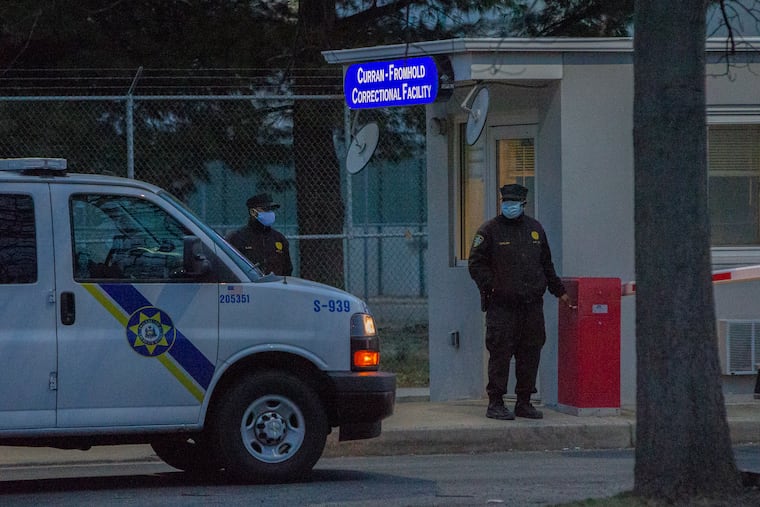As officials ignore the problems in Philly jails, a crisis is brewing
Instead of acknowledging the grave conditions, Philly's leaders obfuscate and deflect.

Twenty-nine people have died in Philadelphia jails since the beginning of the pandemic, according to a recent Inquirer investigation. Five were murdered, at least three died by suicide, and 10 suffered fatal drug overdoses in facilities where there are often no corrections officers present to break up fights or respond to the desperate shouts of people suffering medical emergencies.
Yet city leaders continue to deny there’s a serious problem in the jails. Mayor Jim Kenney was silent when the tragic extent of the deaths in the jails was revealed, while Prisons Commissioner Blanche Carney responded with denials and obfuscations.
» READ MORE: Philly’s shockingly inhumane prison conditions | Opinion
My staff and I at the Pennsylvania Prison Society have observed the unsafe and inhumane conditions in the jails firsthand and made repeated attempts to get the city to recognize the depths of this crisis, with little success. The Philadelphia Department of Prisons’ response to our latest memo detailing these conditions may be its most Orwellian yet. Commissioner Carney attributed the bulk of the deaths to “terminal conditions or serious medical complications that have been developed over many years.” Tell that to the family of Armani Faison, whose calls for help went unanswered for hours as he was raped and murdered by his cellmate one weekend in March last year, according to a lawsuit they filed against the city. Jail records confirmed there wasn’t a single corrections officer supervising his housing unit when he was killed. Just two weeks later, in the same housing unit, Christopher Hinkle suffered fatal injuries in another brutal beating by a cellmate.
A dangerous lack of supervision persists in the jails a year later. When the Prison Society visited the Philadelphia Industrial Correctional Center and the Riverside Correctional Facility in March, all but two out of 39 incarcerated people we asked said that corrections officers were often absent on weekends. The ongoing security issues should come as no surprise to the city, given that its shortage of corrections officers has grown from 382 officers last summer to 644 in April. Nevertheless, in her response to our memo, Carney denied the extent of its staffing crisis and the lived experience of incarcerated people, claiming that “we ensure all housing units are staffed.”
The absence of correctional staff was just one of a litany of issues we learned of on our visit that were met with the department’s stonewalling, from housing units infested with mice and bird droppings, to medical care that was out of reach. One man said that six requests for a medical visit he put in over the course of a year had gone unanswered. “Both sick call slips and medical grievances are responded to promptly” was the department’s dismissive response to such stories.
Instead of acknowledging these grave problems, city officials continue to cast the death and suffering in Philadelphia jails as merely the typical “challenges” prisons are facing during the pandemic, framing them as the product of national trends beyond their control. It’s true that many prisons across the country are grappling with staffing shortages compounded by the outsize toll COVID-19 has taken on correctional facilities. But that doesn’t absolve city leaders of their responsibility to keep people in their custody safe. They have the power to address the critical shortages of correctional and medical staff, and should consider emergency hiring of temporary security staff or calling in the National Guard. They can untangle the administrative inefficiencies that keep people in jails longer than they need to be, further stressing outnumbered corrections officers. That might have saved the life of Trent Mason, who died in an unsupervised housing unit while waiting four days for a transport to traffic court that would have led to his release.
There are immediate actions the city can take to reduce the toll of the suffering. But first it must see this humanitarian crisis for what it is.
Claire Shubik-Richards is the executive director of the Pennsylvania Prison Society, the independent monitor and ombuds for Pennsylvania’s prisons and jails.